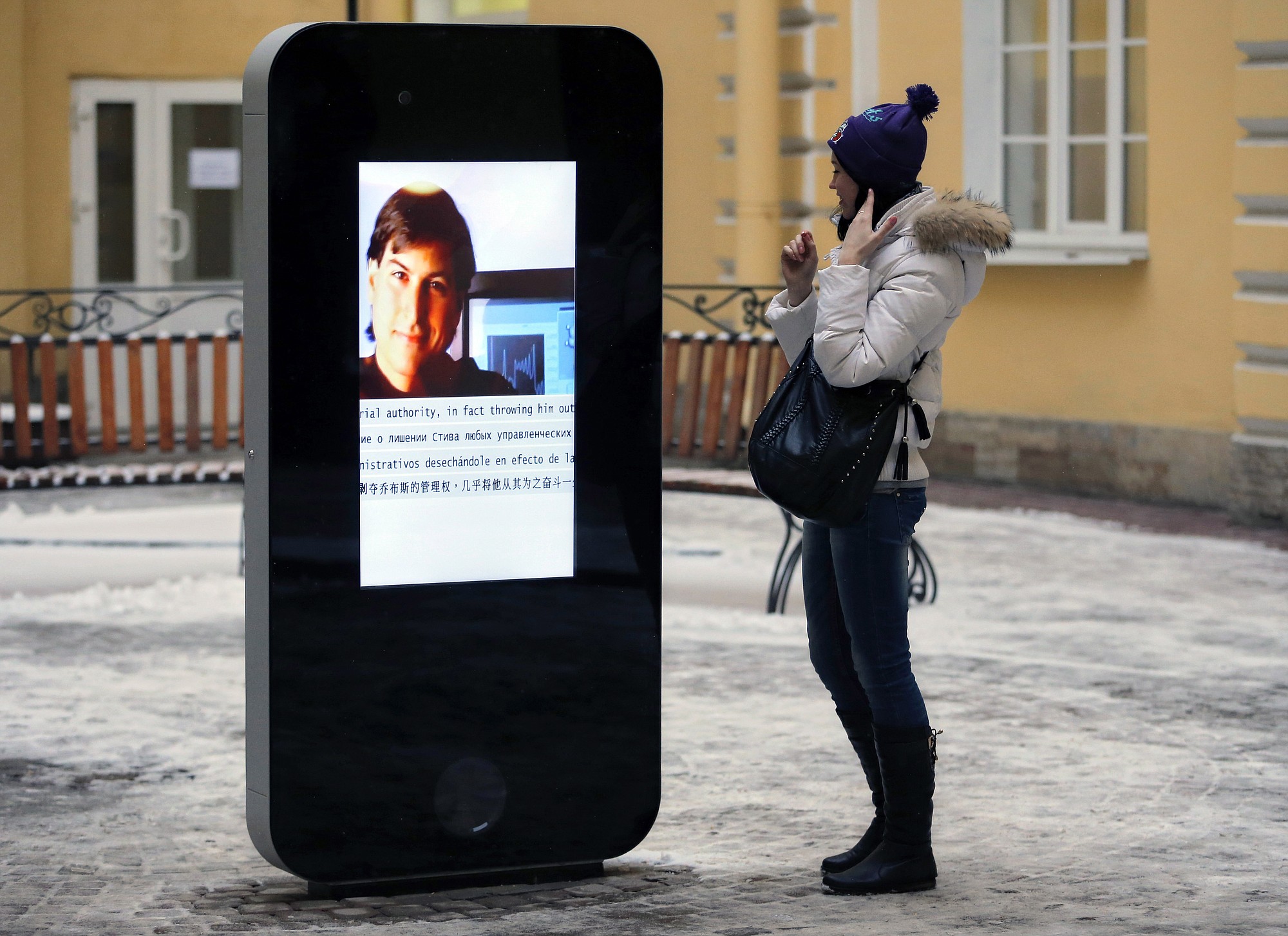CUPERTINO, Calif. — It may be time for Apple to “think different” about its advertising.
The company that won hearts and minds with an Orwellian “1984” spot introducing the Macintosh computer and the enduring “Get a Mac” campaign has failed to impress with recent ads, according to advertising professionals who discussed the company’s approach. Though Apple’s gadgets have gotten sleeker and faster in recent years, the ads have lost their bite, they said.
Searching for its next hit, Apple has taken advertising into its own hands. Though it still works with its longtime agency, the tech giant has made a string of hires to expand its in-house creative team, betting that it cannot only churn out elegant and popular gadgets like the iPhone 6 but also craft ingenious ads for them.
But ad industry professionals say they are still waiting for Silicon Valley’s most celebrated advertiser to return to form. One Apple campaign this year featured the late actor Robin Williams reciting his speech from the film “Dead Poets Society” as artists of various stripes use the iPad Air. The ad hit on a classic Apple theme — that iDevices power creativity — but it felt too soft, several advertising executives said.
“The work hasn’t been great for a while, in my opinion,” said Russel Wohlwerth, a principal at External View Consulting Group. “The big question is will it ever come back. It is a critical time for Apple.”
Some trace Apple’s advertising slump back to the death of founder Steve Jobs, who had an extraordinarily influential hand in the company’s campaigns. Apple’s most memorable ads under Jobs portrayed the company as a scrappy challenger, rebelling against giants such as IBM and Microsoft, said Edward Boches, an advertising professor at Boston University. But those themes ring false now that Apple has become the world’s most valuable company.
“One problem now is that Apple is the establishment,” Boches said. “They need to find a new voice.”
And there’s no app for that.
Three decades ago, Apple set the high-water mark for high-tech advertising.
Drawing from “1984,” George Orwell’s dystopian novel, Apple urged users to reject conformity by buying a Mac. The spot, which aired nationally only once, during that year’s Super Bowl, was crafted by an agency now known as TBWAChiatDay, the firm behind Apple’s most famous ads. In 2006, the agency spun off TBWAMedia Arts Lab, an arm that does work solely for Apple.
But Apple’s bond with its agency of record splintered as competition in the smartphone market intensified. Starting around 2011, Samsung began releasing a series of ads poking fun at Apple and its devoted fans, a campaign that boosted the South Korean company’s brand and irked executives in Cupertino.
“I now have Apple board members asking, ‘What is going on with advertising and what are you doing to fix it?'” Philip Schiller, Apple’s senior vice president of worldwide marketing, wrote to Media Arts Lab in 2013, according to emails revealed in Apple’s patent trial with Samsung earlier this year.
Apple is among a wave of corporations tackling advertising internally, including rival Google. Fifty-eight percent of companies now have in-house agencies, up 16 percent from 2008, according to a 2013 survey conducted by the Association of National Advertisers.
Apple’s spending on advertising has inched up steadily, reaching $1.2 billion in fiscal year 2014. The company seems to be trying to instill a process to replace Jobs’s legendary intuition, said Ken Segall, author of “Insanely Simple: The Obsession that Drives Apple’s Success.”
Tricky proposition
Large corporations often try to boost their odds of picking a winning campaign by soliciting more ideas, Boches said, noting that Apple may be tossing “jump balls” to its internal and external ad teams.
A master of corporate efficiency, Apple has swallowed up certain manufacturing functions, such as producing some of the chips in its products in-house. But advertising may be trickier to annex.
Many creative types relish the flexibility of working for an agency, making a corporate job offer a tough sell, advertising executives say. And some who do go in-house find it difficult to step back and assess whether an ad really works.
“The rub against an in-house firm is it’s like the company is involved with its own baby,” said Wohlwerth, the consultant. “Of course, it thinks the kid is beautiful.”
As the iPhone 6 and 6 Plus debuted to rave reviews this fall, the ads got a more mixed reception.
Several advertising executives applauded a spot in which Justin Timberlake and Jimmy Fallon compare the iPhone 6 and 6 Plus. They were less charmed by an ad in which the duo flaunt their phones while singing the theme from the 1968 film “2001: A Space Odyssey.”
“We did a 2001-based ad in the year 1999,” said Segall, who worked on Apple campaigns at TBWA. “Even then, people didn’t get it.”
Advertising executives say companies do well to release some simpler spots that let the product take center stage. Apple won an Emmy this year for an ad made by Media Arts Lab in which a teenager who is apparently lost in his iPhone over the holidays is later shown to be working on a home video, a spot several advertising executives praised for its broad appeal. Segall wishes Apple would throw some edgy ads in the mix, too.
“The current ads are a little softer,” he said. “I lament that because I think Apple’s brand is so strong that it would support something edgier and more adventurous.”
Still, some in advertising suspect that Apple’s next hit may be just around the bend. The Apple Watch, the company’s first brand-new product since the iPad, may drive more imaginative ads when it is released early next year, said Paula Storti, managing director of Worldwalk Media in San Francisco.
“You’ll see something back to ‘1984’ again,” she predicted.



